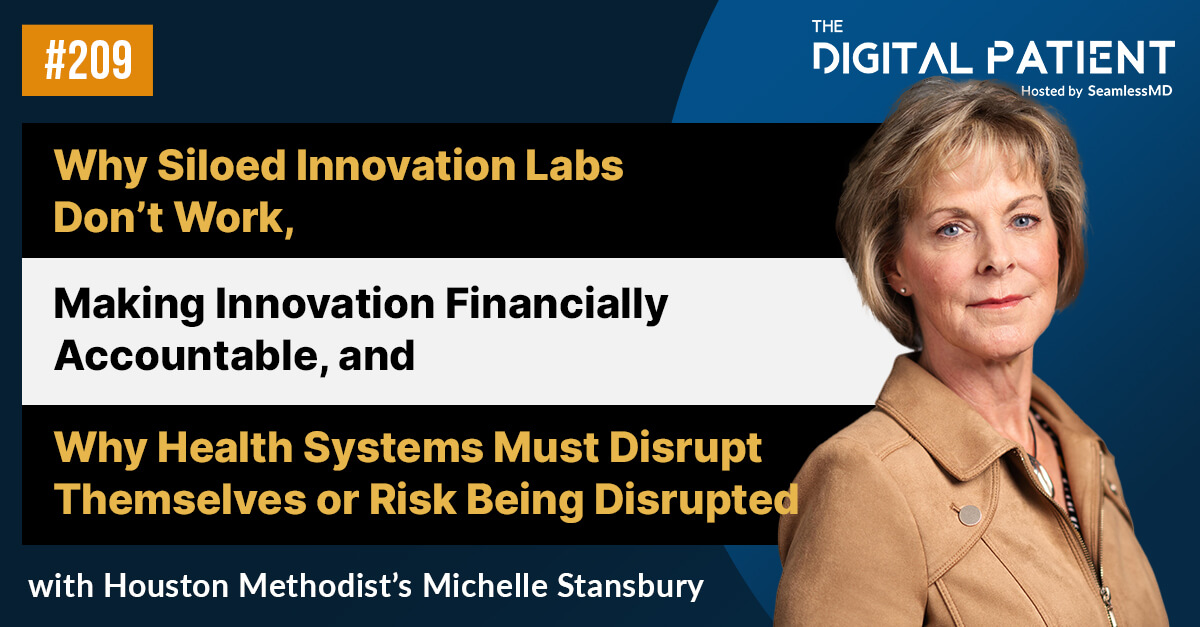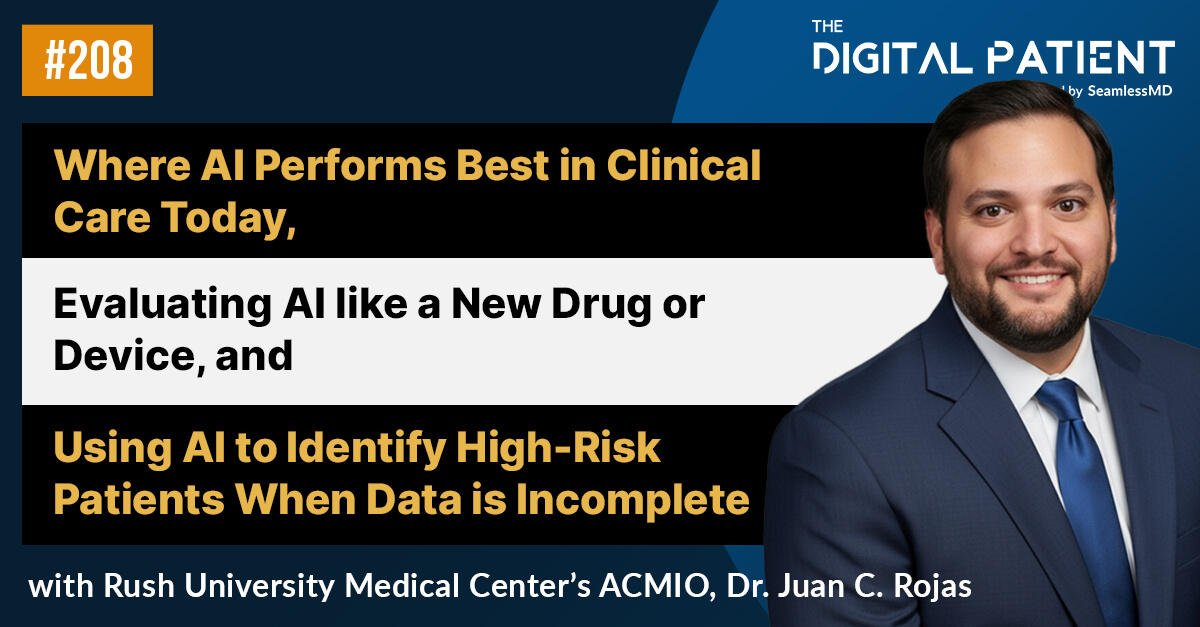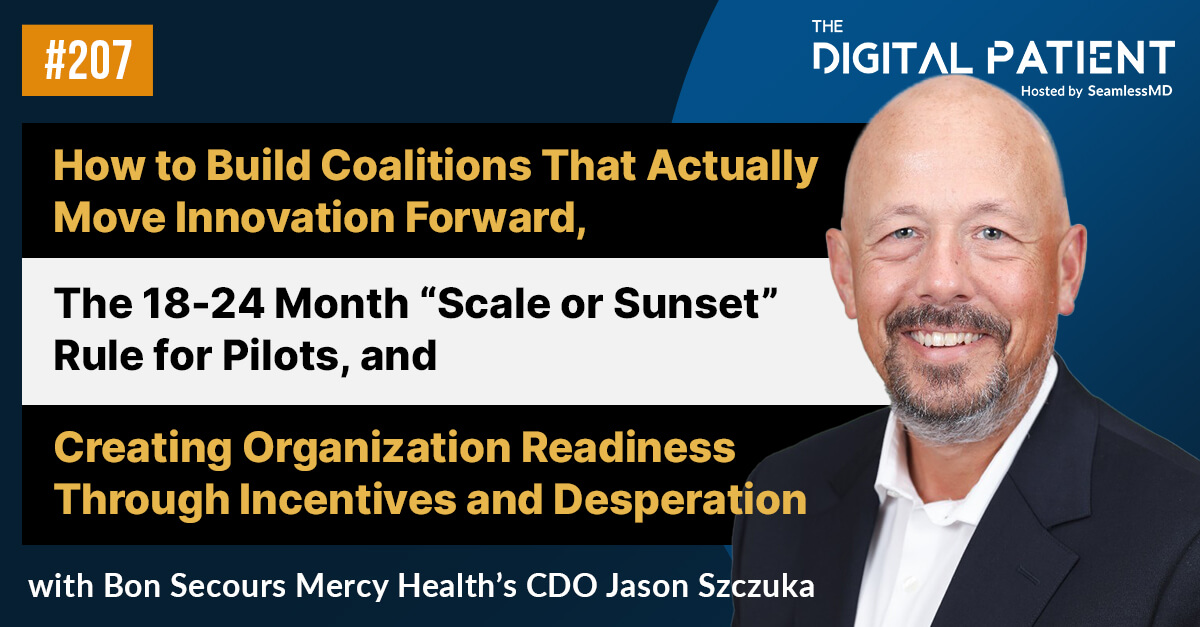December 18, 2025
Rush University Medical Center recently announced its partnership with SeamlessMD to support and expand its Enhanced Recovery After Surgery (ERAS) program.The following is the story published by Rush University Medical Center, originally published here.
Using an App to Speed Surgical Recovery
Messaging software helps patients follow steps for healing
Rush is providing some surgery patients with an app that encourages activities that promote healing.Many patients can recover from major surgery more quickly if they diligently follow recommended practices to aid the body’s healing process — but it’s difficult for these patients to remember and follow the many instructions they’ve been given, especially after surgery has left them weary, medicated and in discomfort. To help them recover faster, Rush University Medical Center recently has been providing some surgery patients with a computer app that prompts, monitors, and encourages activities that promote healing.Called SeamlessMD, the app can be downloaded to a patient’s smartphone, tablet, or computer. It’s a new and potentially integral part of an expanding Rush program called enhanced recovery after surgery, or ERAS for short. Rush is the only hospital in Chicago using this software.“SeamlessMD is a tool that was specifically designed to support patients through a surgical process that includes enhanced recovery,” says Anthony Perry, MD, the vice president for ambulatory care and population health at Rush. “We already had determined that we wanted to provide our patients with the benefits of enhanced recovery protocols, and we had implemented ERAS in several surgical areas. Finding an app that supported that commitment was a nice potential marriage. It’s not only a neat technology, but a neat technology that’s truly aligned with our own goals of better health for those patients coming through the ERAS process.”
Providing reminders as well as information
Developed by a Toronto company of the same name, SeamlessMD uses prompts, checklists, and timelines to remind patients what they should do before and after surgery. For instance, prior to surgery, it will remind a patient to stop taking aspirin or other medications, an oversight that can complicate or delay a surgical procedure.During a patient’s hospital stay, the app provides helpful information about pain control, exercise, and eating and drinking. SeamlessMD remains in use after patients return home, where it uses visual aids and aural prompts to expedite the healing process, answer questions, and reinforce the recovery protocols that Rush doctors and nurses had already explained to their patients. Depending on a patient’s preference, they can receive the app’s messages by email or text message, on a computer and/or a phone.“SeamlessMD is taking the recommendations that we’re giving patients in the ERAS process, and it’s putting that right in a patient’s pocket,” Perry says. “It’s not only giving them the information — because we’ve been giving them the information in hard copy, on paper and so forth, for years — but giving them a reminder.”That capability, Perry says, is a marvelous advance in a doctor’s ability to help a patient: “There’s a bridge that a smartphone gives us into a person’s everyday life that we don’t have when they come visit us in the office, where we’re touching just a tiny part of their lives.”
Seamless MD customized app for Rush ERAS program
To create a customized version of its software for Rush, Seamless MD worked closely with the Medical Center’s colorectal surgery group, as well as with its ERAS leadership team. That collaboration created a version of the app keyed specifically to the colorectal group’s well-established, evidence-based ERAS protocols.“Research has shown that patients who are treated with an enhanced recovery approach recover faster and have fewer complications,” says Joanne Favuzza, DO, a colorectal surgeon at Rush.“It’s a combination of things we do before surgery, during surgery, and after surgery that improves the overall patient experience,” adds Bruce Orkin, MD, also a colorectal surgeon at Rush. “We can decrease surgical site infection rates, improve the pain control after surgery, and reduce the amount of time in the hospital. People get back to work, back to family, back to life much more rapidly.”
ERAS program reduces patients’ hospital stays by days
The Medical Center’s colorectal surgery team pioneered the ERAS program at Rush, starting in December 2014. To date, more than 200 colorectal surgery patients have participated in ERAS, which has reduced their length of hospital stay by 2.2 days on average compared to patients who underwent colorectal surgery at Rush between July 1, 2012, and June 30, 2013. In addition to getting patients out of the hospital faster, ERAS has been shown to increase patient’s satisfaction with their hospital stay.These results have led to the Medical Center expanding the ERAS program to other areas during the past year, including gynecologic oncology (cancer) surgery, general surgery and bariatric (weight loss) surgery. Additional surgical areas are planning to implement ERAS programs as well.General surgery and bariatric surgery have seen reductions in patients stays of 1.2 days and nearly one day, respectively, compared to prior years.
‘I thought it was extremely helpful’
Viviana Rivera became Rush’s first ERAS patient to use SeamlessMD this past December, when she underwent surgery to remove a tumor in her colon. The day before her procedure, the app sent Rivera email messages reminding her of her pre-surgical diet , what medications to take, and what to bring and not bring with her to the hospital.“I thought it was extremely helpful,” she says. “It felt like somebody was there telling you ‘don’t forget to do this, and don’t forget to do that.’”The messages kept coming to her phone when Rivera was in the hospital after her surgery, reminding her to sit up in bed as much as possible, asking her to rate her level of pain to make sure it was being controlled properly, and asking her how many times she got up and walked. “If you don’t walk enough, the app tells you to improve and why you need to walk more,” Rivera says.SeamlessMD continued to help guide her recovery when Rivera, a full-time mother of two, returned to her home on Chicago’s North Side after three days in the hospital. The app continued to ask her about her pain level and to make sure she was taking her pain medication on schedule; checked on her care of her surgical incisions and how much water she was drinking; and send her short articles relevant to her surgery.“At the end of every day, it gave you a questionnaire. If you did everything you were supposed to do for the day, it praised you,” Rivera says with a light giggle. “I felt motivated, encouraged.”The app also empowers patients to seek medical assistance based on the results of their daily health checks. It can tell a patient if he or she is on track with the surgical recovery, should call the nurse, or go to the emergency department.
Seamless likely to expand further
Doctors, nurses and other medical personnel also benefit from using SeamlessMD. The software provides them with real-time data about patients' progress, confirming that they are following instructions and improving as expected or better. What’s more, a family member or other caregiver can enroll in SeamlessMD along with the patient, which can help further engage the patient with his or her recovery plan.“It enables us to effectively educate patients in a timely way, while capturing key clinical data across their care to identify potential problems earlier and understand how to help our patients recover faster,” says Favuzza, who performed Rivera’s surgery.Following additional patient piloting of SeamlessMD, in early February Rush’s colorectal surgery program began offering all colorectal ERAS patients the option of using SeamlessMD, which is provided free of charge.Perry anticipates expanding its use to other patients and other surgical groups. “We’ll let our ERAS leadership team target where they want it to go,” he says.“If the surgeons feel that it’s supporting care, and we get feedback from patients that they felt like it was really supporting their care, we would think about how we could spread it to other areas. Even if it only helps spread ERAS faster within Rush, that’s a benefit in itself.”
.svg)









.png)
